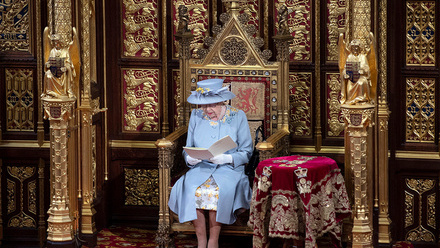The Turnaround Plan: More Trust, Less Crime and High Standards
With focus and by performing well, the Met will deliver More Trust, Less Crime, High Standards, and do so in a way that meets the public’s expectations.
London’s communities are ever-changing and the Met must be more representative of those it serves. The situation we face is changing too, with traditional challenges accompanied by new, varied, and often digital forms of criminality.
You can read the Met Turnaround Plan here.
You can complete the survey here
About the survey
- The survey is being run by Ignite.
- Survey responses are anonymous.
- No personal identifying information is collected when a respondent takes a survey.
- Where respondents provide detailed responses (such as text comments), some of these may be used in reports, but it will not be possible to identify individuals.
- The Met will only have access to the responses given to the questions asked and will not be able to identify individuals or households.
- The results of these surveys will be shared within the Met to help ensure the views of our communities inform our decisions.
Please see below key extracts from the Plan where digital technology is referenced.
Crime is increasingly digitally enabled and online. Fraud is a critical threat, both to London and nationally. To respond, the Met will invest in the right tools and skills and work together with partners such as the National Crime Agency (NCA).
We will use data and technology to make sure we are targeting those highest harm perpetrators. We will invest in areas, such as digital forensics, to help us deliver results in a way that understands the barriers felt by victims. We recognise that mental health plays a significant role in public protection and, by working closely with the NHS, we will strive for an improved response to those in crisis, enabling us to focus on our policing role.
Manage our digital evidence with new tools to analyse CCTV, Automatic Number Plate Recognition (ANPR) and telecommunication data.
We will work with the College of Policing and national leads to ensure our people are best equipped and supported to get results in this important area. By strengthening our partnerships across London, including with other public services, we will increase the specialist expertise available to our officers. We will use the most modern data science techniques to catch the perpetrators of these crimes and better protect victims and target our efforts more effectively.
Alongside bolstering our capabilities in the online and private domains, the Met will also place renewed emphasis on its core policing activities to deliver precise community crime-fighting. This combination of data-enabled policing, alongside new capabilities to respond to growing threats, will make the Met better at solving and preventing crime.
Through multi-agency data sharing, we can better and more effectively prevent offences, investigate and bring perpetrators to justice.
We will rebalance our policing effort to ensure resources are appropriately tasked to target the offenders, locations and methodologies associated with greatest harm to Londoners. We will take advantage of the opportunities offered by technology to respond more effectively to high harm crimes, such as sexual offences, and online crimes such as fraud and child abuse.
Implement lawful business monitoring, using technology to ensure Met systems are used for legitimate purposes.
Review our end-to-end vetting processes to provide better quality and timeliness.
The Met’s corporate services and enabling functions such as People, Data and Technology, Finance and Commercial, Estates and Equipment, Communication and Transformation are essential for effective policing. We need to balance our investment here, building a stronger foundation that is better equipped to actively support our frontline.
Officers and staff have the right technology to undertake their roles with a new mobile platform with decision support applications.
Maximise the value of our Body Worn Video technology bringing transparency to everything we do
We will put technology and data at the heart of measuring public sentiment, understanding what matters to people, what works, and how to engage with communities so that they have more say in determining their policing needs and understand why we take the decisions we do
KEY INTERVENTIONS
- Enable data driven decisions and precise crime fighting. Provide proactive and reactive situational awareness to our officers and staff and real time intelligence.
- A new data task force and data platform to provide insight and make the most of new technologies and techniques.
- Design and implement a new data operating model with new capability to ensure that data, insight and tasking are brought together to ensure optimum use of resources.
- Real time community data collection to redefine community engagement, and collect sentiment data. Delivering precisely targeted local community intervention.
- The Met’s first ever Chief Scientific Officer to provide expert advice, alongside a Data Insight and engineering capability.
We will put users at the heart of our efficiency programme and will drive innovation through streamlined processes, use of technology, and automation, to relocate resources, remove bureaucracy, and make our people more effective. This will involve greater use of automation and digital tools, allowing communities a choice in how they interact with us, and allowing staff and officers to focus on where they can add the most value – investigating and preventing crime, engaging with people and looking after victims.
Roll-out new and existing technologies to streamline processes and release capacity across the Met.
We will further invest in dedicated investigations into allegations of breaches of professional standards, and use data and intelligence more effectively, to improve the quality and timeliness of investigations
In response to what we have heard, we are introducing change. We are rolling out more driving courses. We will implement a CCTV analytics solution reducing the time our investigators spend analysing CCTV. We will extend the Communications Data analysis tools we have successfully deployed to tackle County Lines and maximise the value of our Body Worn Video to enhance supervision and increase trust. Building on our successful PowerApps deployment (Met-specific designed applications to support staff and officers in their roles), the largest in law enforcement in the world, we will introduce access to outside datasets and information for our officers and staff.
Deliver a number of data capability uplift projects to give leaders the data and feedback they need to lead their teams.
We will relentlessly focus on our delivery to the public. A central data hub will allow us to identify and understand problems in real time so that those making tough calls on resources and tactics can see and respond to incidents, trends and be proactive as well as reactive in our policing
Demand for the services we offer is rising. To meet and manage this demand we must deploy intelligently. This means every resource must be used with precision and skill, deploying capable officers and staff where they can have the greatest effect with the best data we have to support them. Becoming more targeted with our interventions is also essential to delivering precise community crime-fighting. We will make the best use of modern, data science techniques and skills to maximise how we use and access the data available to catch criminals.
Making the best possible use of data will enable the Met to ruthlessly guard our integrity, improving our ability to identify corruption and misconduct. A new Chief Scientific Officer with global expertise will bring academic criminology techniques into the heart of decision-making in the Met







